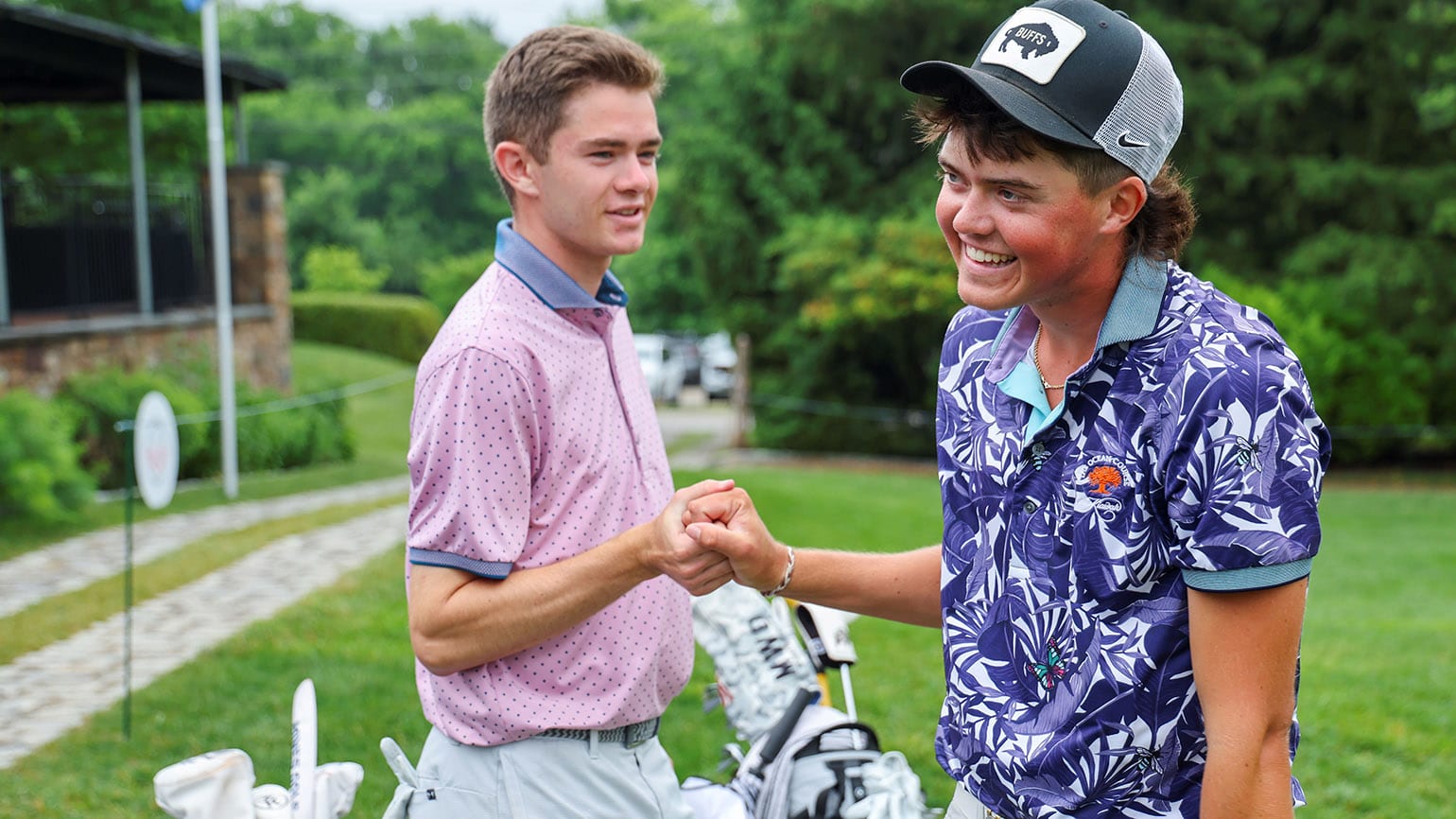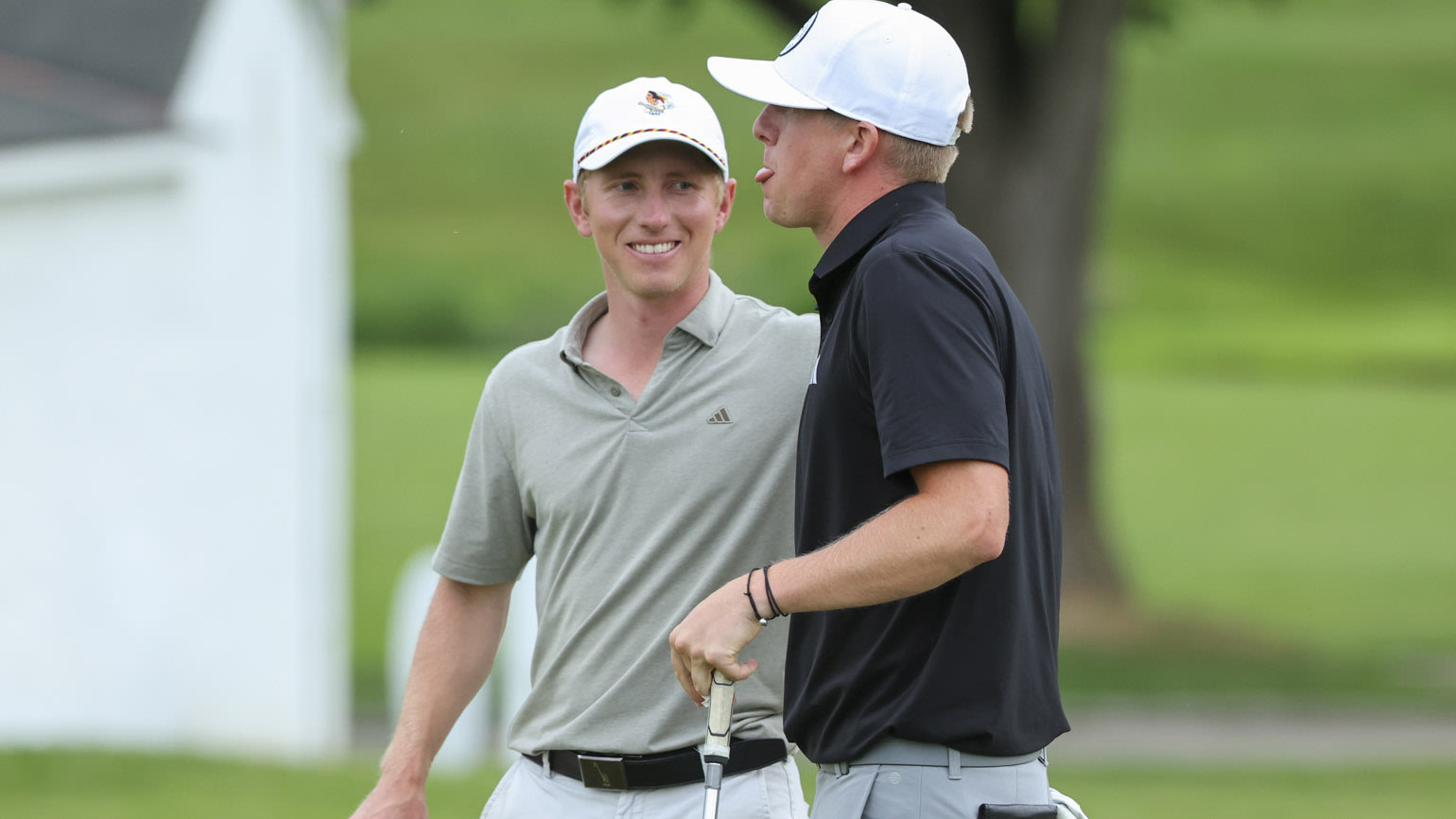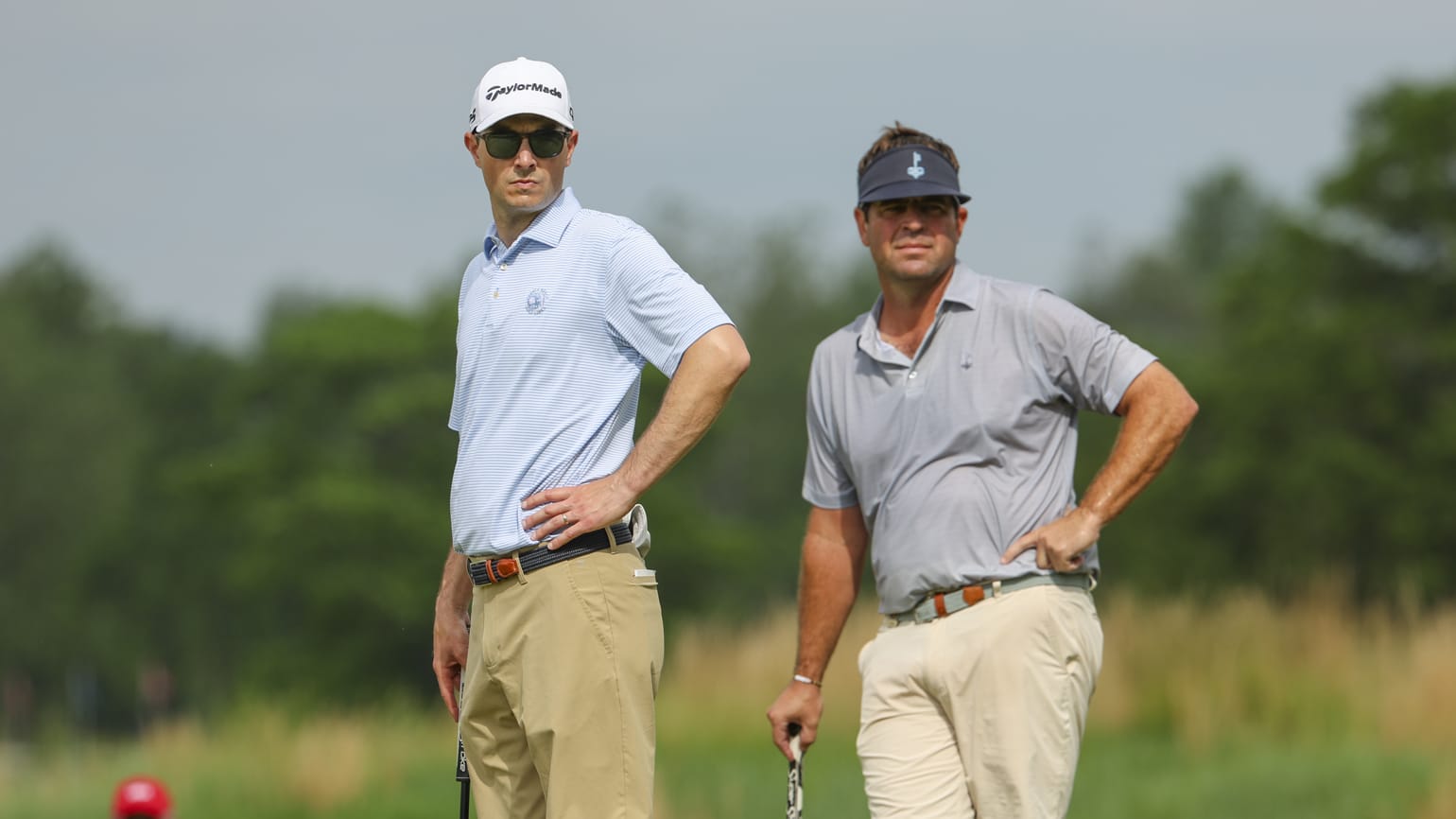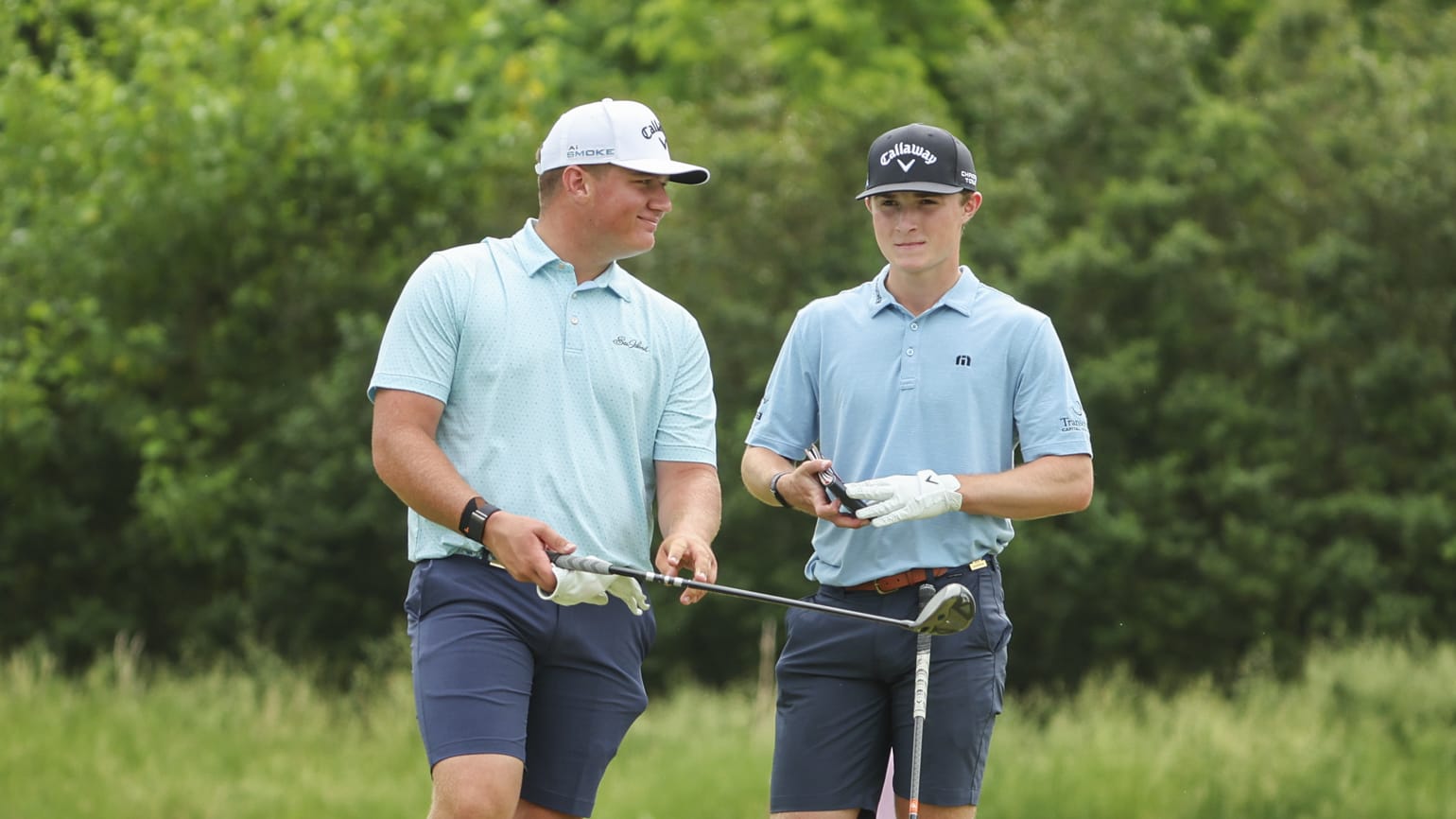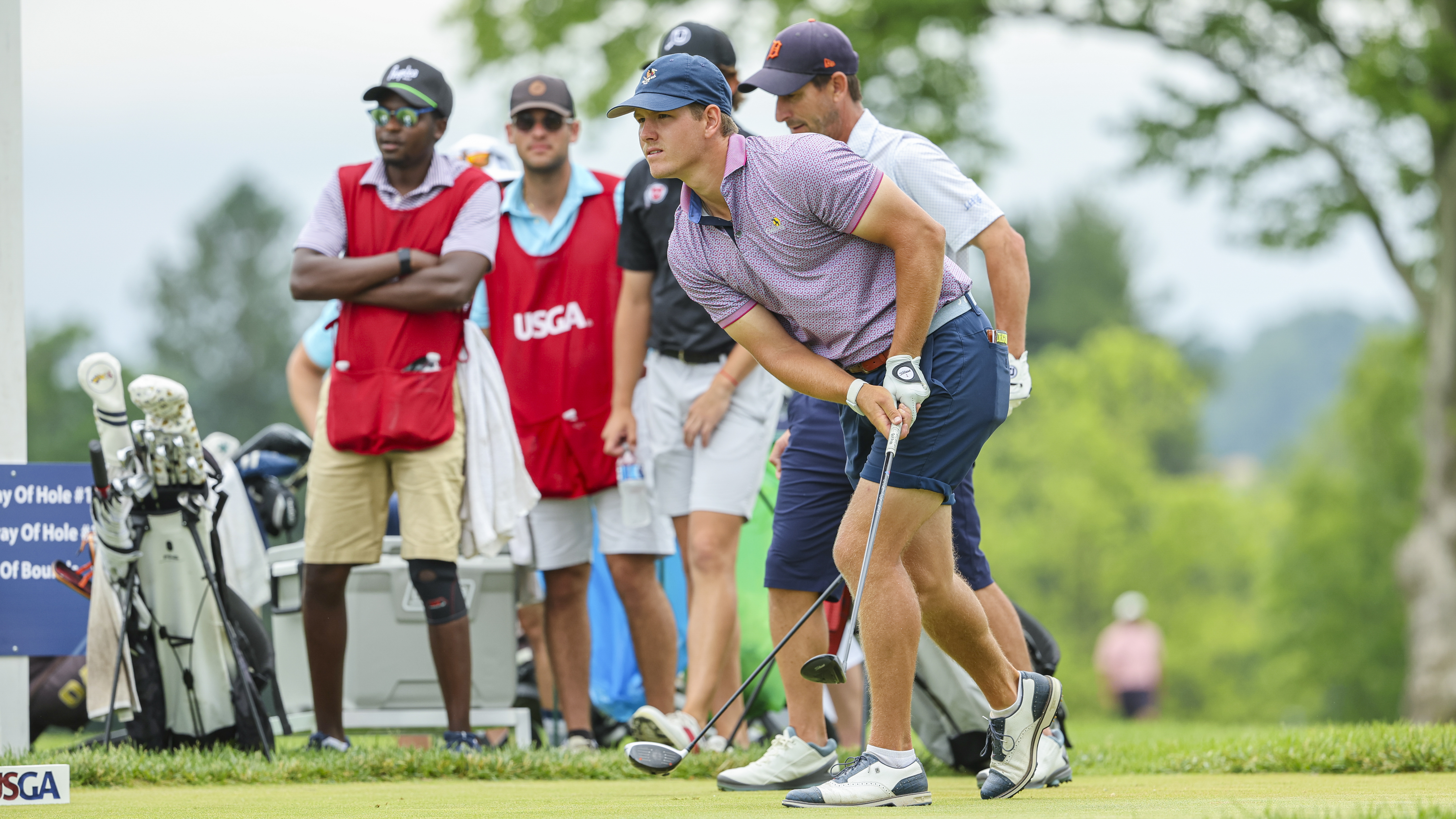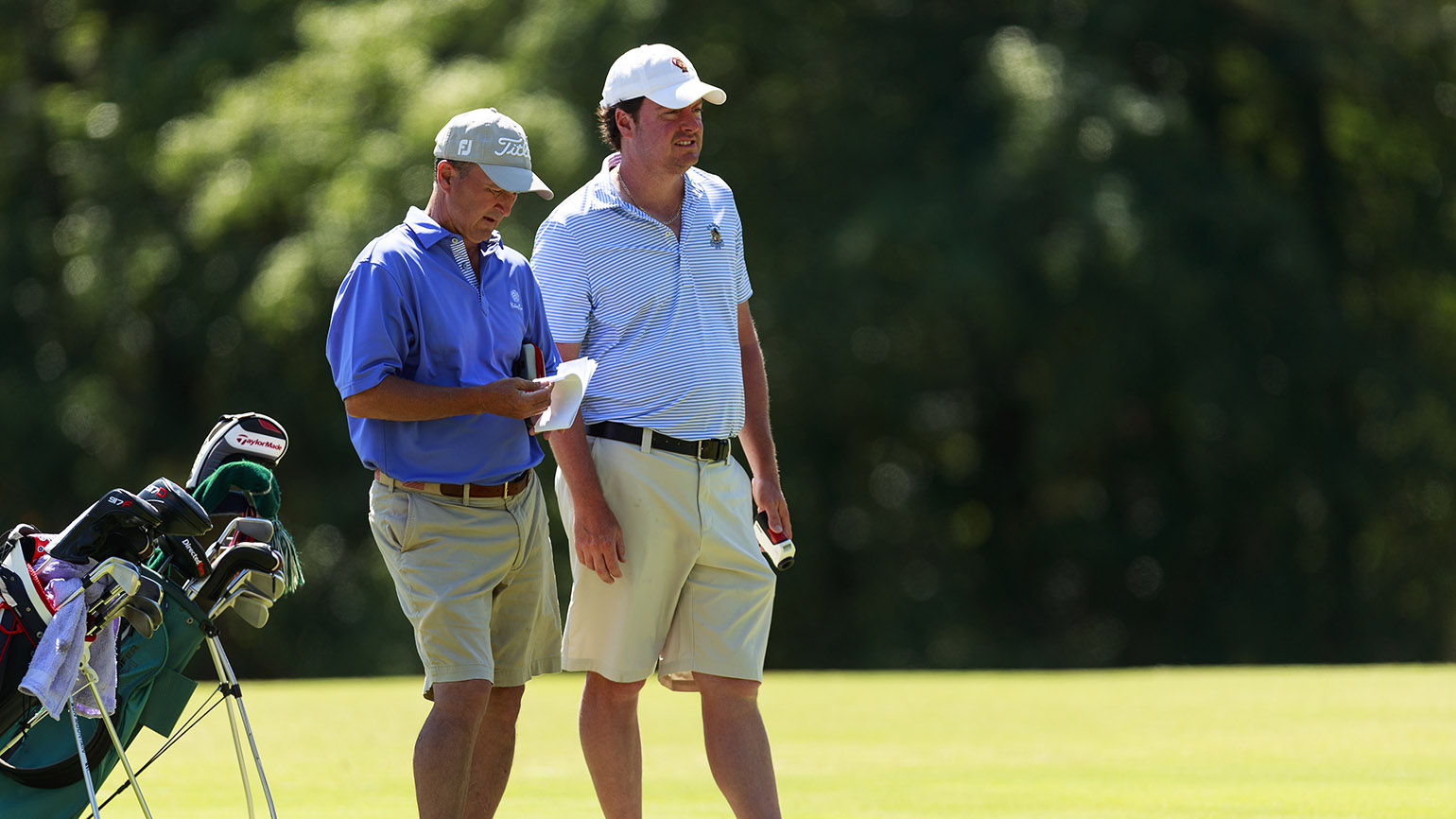Two other extra-hole matches saw the lower seeds advance.
New Mexico State teammates and playoff survivors Javier Delgadillo, 20, of El Paso, Texas, and Aidan Thomas, 23, of New Laguna, N.M., ousted the No. 6 seeds from Colorado, Jimmy Makloski and Colin Prater, in 19 holes.
Meanwhile, Michigan natives Ricky Shilts, 40, of Byron Center, and Chester Vandenberg, 35, of Martin, took out the youngest side in this year’s field, 16-year-old North Carolina rising high school juniors Daniel McBrien and Smith Summerlin, in 20 holes.
The great “homecoming” continued for Tug Maude, 41, of Atlanta, Ga., and 39-year-old John Sawin, of Pebble Beach, Calif., who is the director of golf at the iconic resort. Both became friends through Merion Golf Club’s junior program, and each missed qualifying for the 2005 U.S. Amateur at Merion. But last fall, they qualified for the 9th edition of this championship and are thoroughly enjoying the reunion.
Their stay was extended with a 2-and-1 win over 2015 champions Nathan Smith and Todd White, two players who have competed in a combined four Walker Cups and registered a total of six USGA titles. White will defend his U.S. Senior Amateur crown in August.
Maude and Sawin overcame an early 1-down deficit with birdies on Nos. 5 and 7 and a winning par on Hole 6 to grab a 2-up lead. Even through the delay, they managed to tie the last 10 holes, including matching birdies on the par-5 12th.
“The support has been fabulous from friends and family,” said Sawin, who is staying with his parents and brought his wife and two kids with him. “And we feel at home on the golf course here, although it’s not our home course, having grown up in the area. It’s just been a lot of fun.”
One side didn’t have to sweat out extra holes or drama. U.S. National Junior Team member Blades Brown, 17, of Nashville, Tenn., and incoming University of Tennessee freshman Jackson Herrington, of Dickson, Tenn., quarterfinalists a year ago, shot the equivalent of 6 under par over 13 holes in eliminating Nicholas Jarrett and Trent Peterson, 6 and 5. Getting done relatively quick gave Brown a chance to indulge in some ice cream and take an afternoon siesta. Two marathon days await should they keep advancing.
“We kind of thought we had an advantage, just because of our age,” said Brown of their much-older foes. Jarrett is 45 and Peterson 37. “The guys that we were playing were significantly older than us, so we were going to have an edge coming back [from the delay], and I’m not going to lie, I hit the ball better when we came back. So yeah, the rain delay is unfortunate that it happened, but it definitely played in our favor.”


